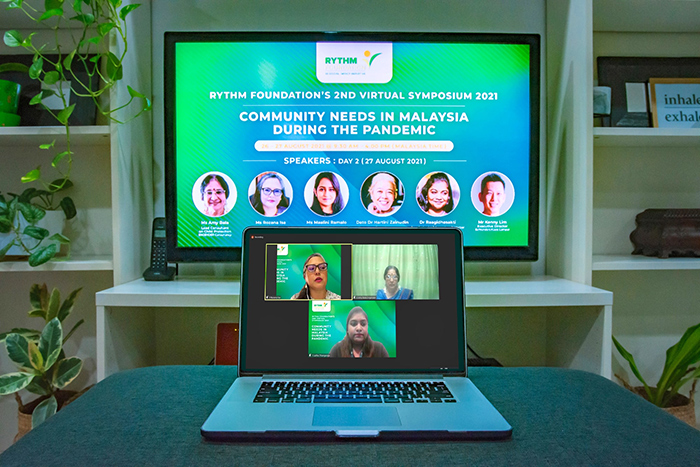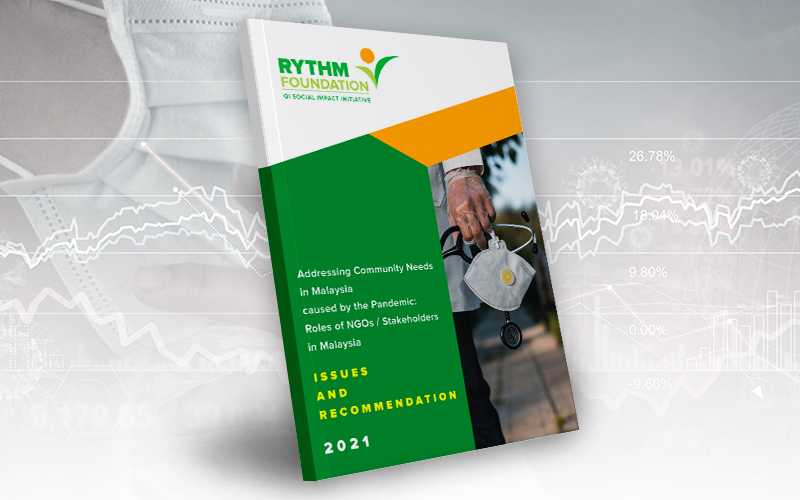The lengthy lockdowns imposed in Malaysia at the onset of the COVID-19 pandemic intensified a decline in the overall wellbeing of Malaysians and a rise in mental health outcomes.
The restrictions resulted in numerous socioeconomic and psychological effects. Businesses and schools were ordered to remain shut or forced to close. The extended curbs affected innumerable people, with the confinement indoors specifically impacting children, young adults, and the elderly.
Early this month, the World Health Organisation (WHO) said the pandemic had taken a dire toll on mental health, indicating that anxiety and depression had swelled by over 25% globally. WHO also found that COVID-19 had significantly impeded access to mental health services and raised concerns about increases in suicidal behaviour.
In Malaysia, Befrienders, a helpline providing emotional support to people in distress, despair or suicidal, reported receiving over 100 calls a day during the third Movement Control Order last year. The not-for-profit organisation said many callers cited struggling with loneliness as their movements were restricted.
How Malaysia supports communities with their mental health and wellbeing was one of six core topics deliberated during two symposiums in 2021 on “Addressing Community Needs in Malaysia During the Pandemic.” The virtual meetings were organised by RYTHM Foundation, the social impact arm of QI Group.
The meetings resulted in a Position Paper that details the framework and proposes medium- to long-term solutions to the Malaysian government. RYTHM hopes the recommendations are implemented in the 12th Malaysia Plan (2021-2025) to mitigate the impact of the pandemic on vulnerable groups.
The paper also details the challenges and proposed solutions in five other areas of concern: Malaysia’s indigenous communities, financial difficulties of the lower-income groups, special needs education challenges, gender-based violence, and the issue of stateless children.
Also read: Position Paper Series: Addressing Pressing Pandemic Issues
Issues of the Economically and Socially Vulnerable
The experts deliberating the issue believed the figures for those struggling with mental health-related challenges were much more significant. With declining social wellbeing, the lifetime prevalence of mental health in Malaysia has also diminished.
“There are still barriers to effective implementation of mental health practices and policies in Malaysia. Firstly, the necessary information on current mental health practices must be accessible to the public,” the paper said.
“There is a lack of awareness among the public on how and where they could get mental health support. (As a result) many people do not receive accurate information about mental health disorders, preventing them from seeking appropriate psychiatric and psychological support.”
The panellists also cited financial difficulties and social stigma as significant barriers to those seeking treatment. “Stigma is a universal barrier that prevents people from reaching out and seeking help. In addition, it often results in negative labelling and the exclusion of individuals from their communities and society.”
Also read: Position Paper Series: Ensuring Financial Stability in the Battle Against COVID-19
The effects of the pandemic were many and diverse for the mentally at risk. “The pandemic created vulnerable population groups, especially when families were devastated after losing loved ones to the disease.
Sudden, unfortunate deaths of loved ones can cause psychological distress, including experiences of Post-Traumatic Stress Disorder (PTSD) among affected children and families. “Besides experiencing psychological distress, affected children who have lost both parents become physically displaced and stranded, not knowing where to go and who to reach out to.”
The report raised several other serious issues the socially and economically vulnerable felt. The affected groups included single mothers, the elderly, the homeless, and people struggling with substance abuse. Another affected group was teens who reported experiencing a range of emotional challenges since the onset of the pandemic.
“Teenagers reported feeling lethargic, agitated, depressed, anxious, lost, exhausted, and demotivated. They also experienced physical and behavioural changes such as sleeping problems and dwindling productivity as their school workload grew.”
Also read: Position Paper Series: The Pandemic of Gender-Based Violence
Low-wage earners struggling to survive were not spared either. The pandemic displaced people from their jobs and hindered employment opportunities.
“Due to reduced wages and income loss, many couldn’t afford to put food on the table and feed their family. Consequently, the priority of the general community was focused on making ends meet rather than addressing mental health issues.
“The uncertainty was compounded by a rise in severe anxiety and depression among the psychologically vulnerable. Schizophrenia and bipolar disorder were commonly reported conditions by the psychologically fragile,” the report added.

Promoting Mental Health Education
The paper outlined several proposals by the panellists to address mental health issues. “There are a few recommendations in which the government, relevant stakeholders, and policymakers can
better address outcomes to increase mental health literacy.”
A possible solution is increasing informal social support within communities to help and support others in their times of need.
“Informal support garnered from the community ensures that its members can remain vigilant and recognise those suffering emotionally. Community members could reach out more openly and seek emotional help during psychological distress.”
The speakers also suggested employers work towards normalising and providing better mental health support in the workplace.
“Employers and fellow employees could actively listen to their colleagues, subordinates, and superiors, if possible, functioning as a collaborative primary care unit for emotional support in the workplace.”
The report also noted the need for families to promote mental health literacy with their children. The experts agreed that parents were ideal role models to encourage open conversations about emotions and feelings at home.
“By doing this, parents can better monitor their child’s emotional health and notice early signs of mental health struggles that may require early interventions. In addition, reflecting with their children helps build a safe space to talk about psychological distress or mental health topics.”
Also read: Position Paper Series: The Impact of COVID-19 on Special Needs Education In Malaysia
The panellists proposed implementing mental health lessons in the national education curriculum and training more mental health practitioners at the university level.
“The government could consider implementing elements of mental health awareness lessons in the Moral Education syllabus. This is the first step to educating every student from a young age about mental health issues. This initiative could lessen the social stigma surrounding the sensitive and challenging topic.
“Universities need to focus on training future mental health practitioners to specialise in working with children and adolescents and providing online therapy services. This is consistent with the National Strategic Plan for Mental Health 2020-2025. One of its goals is to raise mental health awareness at all education levels.”
Policymakers could also focus on implementing mental health initiatives among rural populations because of their marginalised state. The panellists suggested utilising local hospitals, clinics, and the Social Welfare Department to reach these communities.
Also read: Position Paper Series: Of COVID-19 And Malaysia’s Stateless Children






